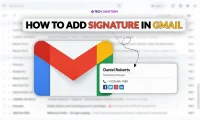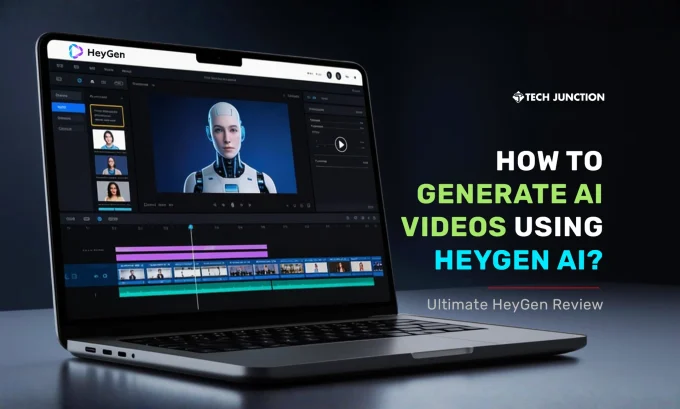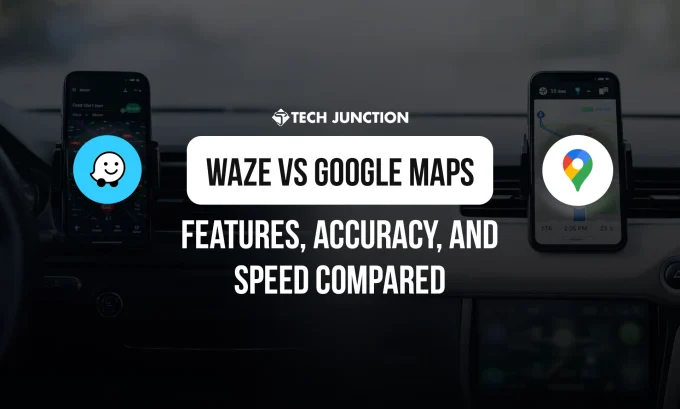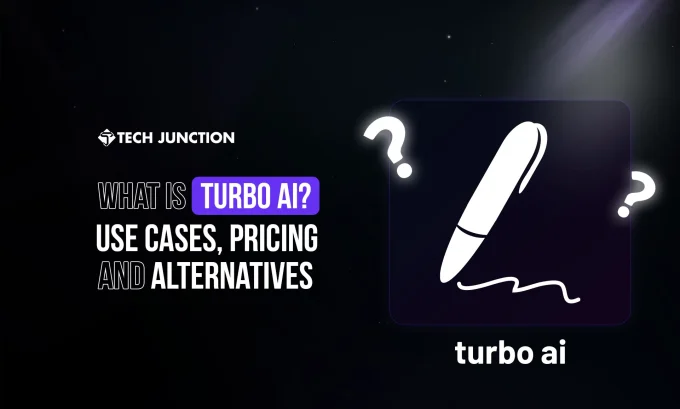In 2025, an AI Brand Voice Generator can literally give your brand its own voice. Thanks to advances in AI voice generation, synthetic speech now sounds uncannily human, allowing businesses and creators to maintain a consistent tone across videos, ads, and interactive content.
Instead of spending weeks and budgets on voice actors for every project, brands can simply use voice AI software to generate natural-sounding speech in multiple languages on demand. As Microsoft’s Eric Boyd noted, “Neural voice is a big leap forward to make it sound really natural,” and honestly, that leap is evident in the tools I will review here.
But which brand voice generator is right for you? Below, I will rank the 10 best AI voice generators for 2025. My reviews draw on real user feedback and online reviews to honestly evaluate each option’s strengths (like realism, language support, or customization) and weaknesses (such as cost or quirks).
Let’s dive in and hear what these platforms can do.
1. ElevenLabs – The All-Around Best AI Brand Voice Generator for Natural Voices
One name that keeps coming up in AI voice gen discussions is ElevenLabs. Launched in 2023 and rapidly evolving, ElevenLabs offers some of the most life-like AI voices available.
It supports a large library of voices across multiple languages and accents and even allows you to clone a voice or design a new one from samples. Content creators rave about its quality: one Reddit user said,
“ElevenLabs blew me away — the voices are incredibly human-like”, noting that listeners thought the AI narration was a real voice actor.
Beyond raw quality, ElevenLabs packs a versatile feature set. Its web-based Studio provides instant text-to-speech conversion and an AI custom voice generator for cloning voices with just a short sample. In 2025, the platform expanded into a one-stop audio creation suite, adding tools for background music, sound effects, and even an AI DJ/agent that can speak in your brand’s voice on calls or chats.
An advanced v3 model lets you direct tone and emotion via text prompts (e.g., make the voice whisper or chuckle), bringing nuance to the narration.
Pros & Cons of ElevenLabs
| Pros | Cons |
|---|---|
| Ultra-realistic, natural voices (among the most human-like) | Free plan limited (only ~10 mins of speech) |
| Supports 30+ languages and accents | Minor glitches on tricky words or sounds |
| Voice cloning & custom voice design options | Child/celebrity voice cloning restricted by ethics |
| Emotion & style control (e.g., whisper, laugh, etc.) | Commercial use requires paid plan |
| Zapier/API integrations for workflow automation | Some reports of instability on long texts |
2. Microsoft Azure Custom Neural Voice – Enterprise AI Voice Generator for Unique Brand Voices
When it comes to enterprises creating a signature voice, Microsoft’s Custom Neural Voice (part of Azure AI) is a top contender. This AI brand voice generator enables companies to build a completely unique synthetic voice modeled on a real voice talent.
Microsoft’s technology has already powered some famous examples: Progressive Insurance used it to clone the voice of “Flo,” their iconic spokesperson, for a virtual agent that chats with customers. Warner Bros. used Azure’s custom voice to bring Bugs Bunny to life as an interactive character in an AT&T retail store.
Custom Neural Voice works by having a voice actor record a set of scripts, which the AI then learns to emulate with astonishing realism. Microsoft applies strict ethical controls, both the voice actor and the client must consent and follow usage guidelines to prevent deepfake misuse.
The payoff is a voice that’s nearly indistinguishable from a human, built exclusively for your brand’s use. With support for 110+ languages in Azure’s standard speech and the ability to transfer a cloned voice into other languages, it’s also a multilingual powerhouse.
Pros & Cons of Microsoft Azure Custom Neural Voice
| Pros | Cons |
|---|---|
| Enterprise-grade AI custom voice generator | Access restricted (application/approval needed) |
| Creates unique, proprietary brand voices | Setup requires significant investment & time |
| Supports 110+ languages with cross-language transfer | Not suitable for small creators or casual use |
| Used by big brands (Progressive, Warner Bros., BBC) | Technical integration skills required |
| Strong compliance & ethical safeguards | Expensive relative to creator-friendly tools |
3. Amazon Polly (Amazon Brand Voice) – Scalable Voice AI Software with Broad Language Support
Amazon Polly is another big player in AI brand voice generator tools, particularly known for its breadth of voices and easy cloud integration. Polly is Amazon Web Services’ text-to-speech service, offering audio generation from text in an impressive range of languages and voices.
As of 2025, Polly provides 100+ voices across 40+ languages and variants (from natural American and British English narrators to Korean, Arabic, Spanish, Hindi, and more). The voices are high-quality neural TTS, and Amazon continuously updates the roster with new speaking styles and even bilingual voices.
For brands, Amazon offers a specialized program called Brand Voice under Polly. This is like Microsoft’s custom voice: large brands can work with AWS to create a unique AI voice that embodies their identity.
Notably, KFC did this to develop an AI version of Colonel Sanders’ voice for an Alexa interactive ad campaign. Even Alexa’s celebrity voices (like Samuel L. Jackson’s voice available on Alexa devices) were built using Amazon’s neural TTS tech.
For everyday users, Polly provides a robust API and console where you can input text and retrieve speech audio. It supports SSML for fine control (adjusting pronunciation, emphasis, etc.), which advanced users appreciate to get the tone just right.
Pros & Cons of Amazon Polly
| Pros | Cons |
|---|---|
| 100+ voices across 40+ languages | Stock voices less emotive than ElevenLabs |
| Scalable, reliable cloud service | Neural voices cost more per character |
| SSML controls for pronunciation & emphasis | Brand Voice (custom voice) only for enterprises |
| Pay-as-you-go pricing good for high volumes | Developer-oriented interface (not beginner-friendly) |
| Used in campaigns (KFC’s AI Colonel Sanders voice) | Limited emotional performance vs smaller startups |
4. Google Cloud TTS (WaveNet & Custom Voice) – AI Brand Voice Generation with Custom Brand Voice Option
Google has been at the forefront of AI voices since its DeepMind unit created WaveNet. Google Cloud Text-to-Speech is the result of that research, offering arguably the largest selection of voices and languages on the market. It boasts 380+ voices in 50+ languages and variants.
The different AI voices range from calm narrators to upbeat assistants, across languages from Mandarin and Hindi to Spanish and French. If your brand needs multilingual voice consistency, Google’s roster is hard to beat.
And the quality is high: Google’s WaveNet voices have very fluid and humanlike intonation, a notable jump from old robotic TTS. Many developers and products rely on Google’s TTS for its natural sound and fast response.
A big draw for brands is Google’s Custom Voice feature (now in preview as Instant Custom Voice). It allows you to create a unique voice that represents your brand, rather than using a common voice that other companies might also use.
Google emphasizes quick turnaround for this feature (hence “instant”), though it’s an early access offering in 2025. Once created, the custom voice can be used like any other via the API.
Pros & Cons of Google Cloud TTS
| Pros | Cons |
|---|---|
| 380+ voices across 50+ languages | Not all voices equally good; some older ones sound flat |
| WaveNet & Neural2 models highly natural | Requires trial & error to pick best voices |
| Robust API & documentation | Geared toward developers, not casual users |
| Custom Voice feature (preview) builds unique brand voices | Custom Voice access limited & early-stage |
| Advanced SSML & phoneme controls | Emotional expressiveness trails ElevenLabs/WellSaid |
5. Murf.ai – Creator-Friendly AI Brand Voice Generator with Multilingual Options
For content creators, e-learning developers, or marketers, Murf.ai has become a popular voice AI software thanks to its easy studio interface and wide array of voices. Murf positions itself as a one-stop online tool to turn scripts or home recordings into professional voiceovers.
Users frequently praise how natural and professional the voices sound and the variety of accents and languages available. In fact, Murf offers 200+ voices in 20+ languages (as of 2024), ranging from multiple English accents to Spanish, French, German, Hindi, Japanese, and beyond.
You can select male or female voices with different tones (narrative, upbeat, authoritative, etc.), making it easy to find a voice that fits your brand’s vibe. Murf’s strength lies in features tailored to workflow.
Its browser-based studio lets you paste in a script, pick a voice, and tweak the output with fine controls like adjusting pitch, speed, pauses, and even pronunciations word-by-word. One G2 reviewer noted,
“The voices sound natural, with a variety of language options and accents, and I can adjust the pitch, speed, and tone to get it just right”.
This ability to fine-tune ensures your audio generator from text matches the exact mood you want. Murf also has a built-in timeline editor to sync voiceovers with slides or video, background music tracks you can add, and recently introduced an AI dubbing feature to automatically translate and dub videos into other languages.
Notably, Murf supports voice cloning too. On higher plans or enterprise, you can create a custom AI voice (say, cloning your own voice for consistent narration) through their Voice Clone lab.
Pros & Cons of Murf.ai
| Pros | Cons |
|---|---|
| 200+ voices in 20+ languages | Some voices still a bit mechanical |
| Easy drag-and-drop studio editor | Mispronunciations on technical words |
| Fine controls: pitch, speed, tone | Best voices & cloning only on higher tiers |
| Background music + video sync features | Pricey at scale vs pay-as-you-go services |
| Voice cloning available for brands | More suited for pre-recorded content than live |
6. WellSaid Labs – Professional-Grade Voices with Precise Control (Great for Teams)
WellSaid Labs is an AI brand voice generator favored in professional e-learning, marketing, and product content circles. Spun out of Seattle’s tech scene, WellSaid focuses on high-quality, realistic voices and offers a collaborative platform for teams.
It might not have as many languages (primarily English, with an emphasis on American dialect) as some competitors, but what it does, it does very well. Zapier’s review named WellSaid “the best for word-by-word control.”
Indeed, one standout feature is the ability to tweak how individual words are pronounced or emphasized after generating the audio. You can select a word and adjust its speed or volume, or insert a longer pause at a comma, all within their editor.
WellSaid’s voices themselves are top-notch. They are based on real voice actors and sound expressive yet natural.
The platform is used by companies to create training narrations, product walkthroughs, and even public-facing content like promotional videos. It offers multiple speaker styles (narrator, conversational, promotional, etc.), albeit all in English currently.
For brands concerned about privacy and compliance, WellSaid checks important boxes: it’s SOC 2 certified and GDPR compliant, meaning it handles data securely. It even integrates with popular tools like Adobe Premiere Pro, so media teams can drop AI narration into videos seamlessly.
Pros & Cons of WellSaid Labs
| Pros | Cons |
|---|---|
| Professional-grade, realistic voices | Limited languages (mostly English) |
| Word-by-word control for fine tuning | High cost ($50+/user/month) |
| Team collaboration features | Some struggle with emotional extremes |
| Integrates with Adobe Premiere & other tools | Usage limits on standard plans |
| Strong compliance (SOC2, GDPR) | Narrower audience than creator-friendly tools |
7. Resemble AI – Powerful Voice Cloning with API for Multi-Language Voice Transformation
If your goal is to create a custom AI voice that truly sounds like a specific person (be it your brand’s spokesperson or a fictional character) and even have it speak other languages, Resemble AI is an AI brand voice generator worth knowing. Resemble AI specializes in voice cloning and has been used by major media companies and game studios to produce voices that were previously “impossible,” according to its founders.
It can “transfer voices to other languages,” meaning a voice cloned in English can be made to speak Spanish or Italian while preserving the vocal qualities. This is a game-changer for global brands that want the same recognizable voice worldwide, without recording voice actors in every language.
Resemble’s system allows you to record audio (they recommend 50 samples or more for best results) and then generate a voice clone model. Users have praised the lifelike nature of Resemble’s voices and the platform’s support for many languages and use cases.
In fact, “customers often praise Resemble AI for its high-quality AI voice generators, realistic voice synthesis, and excellent customer support.” It even has a real-time voice conversion mode: speak into the mic and it outputs in the target voice, which could be used for live performances or streaming with a different persona.
For developers, Resemble offers an extensive API and has integrations to deploy voices into apps or even voice assistant devices.
Pros & Cons of Resemble AI
| Pros | Cons |
|---|---|
| Extremely high-quality voice cloning | Pricing can get expensive quickly |
| Supports cross-language voice transfer | Less intuitive UI for beginners |
| Custom voice creation with emotion & tone | Quality depends heavily on input data |
| Strong ethical safeguards (consent required) | Casual users may find it too complex |
| Real-time voice conversion for live use | Premium features locked behind enterprise plans |
8. Respeecher – Cutting-Edge Voice Cloning for Media (Used in Star Wars Franchise)
On the more bleeding-edge side of brand voice tech lies Respeecher, a specialist in voice cloning that’s made headlines for its work in Hollywood. If you watched certain Star Wars TV episodes or other films recently, you may have heard Respeecher’s technology in action without realizing it.
For instance, Respeecher’s AI was used to recreate the young voice of Luke Skywalker in The Mandalorian and The Book of Boba Fett, allowing Mark Hamill’s 1980s-era voice to speak new lines decades later. It was also used to mimic Darth Vader’s iconic voice in the Obi-Wan Kenobi series, with such quality that James Earl Jones himself approved the AI to carry on the role.
Respeecher’s platform works a bit differently than text-to-speech as it often operates as speech-to-speech. You provide a recording of one person (e.g., an actor or yourself) reading the script, and Respeecher transforms it into the target voice.
This approach captures the performance (timing, emotion) of a human actor but in a different voice, resulting in extremely engaging speech variations and natural output. However, they also have a text-to-speech interface for convenience and a growing library of voices.
The UI is a bit unintuitive and geared towards experienced users and that’s likely because Respeecher mainly works with studios and enterprise clients on bespoke projects. They do offer a self-serve web app now, but their core business is high-end voice cloning for film, TV, gaming, and advertising.
Pros & Cons of Respeecher
| Pros | Cons |
|---|---|
| Used in Hollywood (Star Wars, Obi-Wan, etc.) | Not aimed at casual/low-budget users |
| Top-tier voice cloning accuracy | Mainly English-focused |
| Captures human performance & emotion | Pricing is premium & requires negotiation |
| Great for film, gaming, & creative projects | Complex UI; unintuitive for beginners |
| Real-time speech-to-speech mode | Limited availability of voices compared to others |
9. Speechify – User-Friendly Reader turned AI Brand Voice Generator with 1000+ Voices
Speechify made its name as a text-to-speech reading app (popular among students and professionals to listen to articles or PDFs). In recent years, it expanded into a full voice AI software platform with Speechify Studio, offering a huge selection of voices and the ability to generate voiceovers for your own content.
It even features some celebrity voices like Snoop Dogg and Gwyneth Paltrow for novelty use, showcasing just how far TTS has come in mimicking famous voices. While those particular voices are restricted to personal reading and not available for download, they hint at Speechify’s capabilities.
In the Studio, you have access to over 1,000 voices covering dozens of languages making it one of the largest voice selections alongside Google’s. The emphasis here is on convenience and variety.
One thing Speechify excels at is producing a smooth, human-like cadence out-of-the-box. As one reviewer noted,
“It often generates a pleasing voiceover on the first try that sounds like a creative, experienced voice actor – calm, well-paced, with a good balance between variation and consistency.”
This means the default settings and voices have natural intonation (pauses, emphasis) that require little manual tweaking. That’s great if you’re not an audio expert; you can paste your text, choose a voice style and likely get a useable result immediately.
Speechify also provides controls for speed, pitch, volume, and custom pronunciation if needed, aligning it with other top tools in terms of fine-tuning. Another unique feature: Speechify Studio can generate simple video presentations by pairing voice with slides and background music automatically.
Pros & Cons of Speechify
| Pros | Cons |
|---|---|
| 1,000+ voices in dozens of languages | Some voices can sound flat |
| Very easy to use (mobile & web apps) | Celebrity voices restricted to personal reading |
| Good natural cadence out-of-the-box | Not as nuanced as pro-grade tools |
| Offers custom pronunciation & cloning | Better for narration than dramatic reads |
| Affordable plans & fast generation | Studio interface less robust than Murf/WellSaid |
10. Hume AI – Innovative Voice Design from Scratch (Prompt-Based Brand Voice AI)
Rounding out our list of AI brand voice generator tools is Hume AI (often just called Hume), an up-and-coming platform that takes a creative approach: designing a voice via text descriptions. If you’ve ever struggled to find the perfect voice from a library, Hume lets you instead describe what you want and have the AI generate a custom voice to match.
For example, you could prompt Hume with something like, “A brand voice generator for a luxury coffee shop: smooth, deep, British accent, with a warm and trustworthy tone.” Hume’s system would then attempt to create a voice with those characteristics.
Once you’ve generated one or several voices this way, Hume allows you to use them for text-to-speech. You input your script, select your custom voice, and generate the audio.
It doesn’t yet have the granular word-by-word controls of others; instead, if you want a different inflection or emotion, you might influence it via the prompt or by choosing a different voice style. There’s a learning curve here, as the results can be unpredictable as one attempt might be perfect, another slightly off, requiring more prompt tweaking.
That said, as you iterate, you can achieve nuanced performances that feel very bespoke. Hume also offers something unique beyond voice generation: it includes emotional intelligence features for conversational agents.
Pros & Cons of Hume AI
| Pros | Cons |
|---|---|
| Innovative prompt-based brand voice generator | Still early-stage; unpredictable results |
| Lets you design one-of-a-kind voices | Limited multilingual support (mostly English/Spanish) |
| Focus on emotion & conversational adaptation | No fine manual control (relies on prompts) |
| Strong data privacy & ethical policies | Pricing unclear; more research/enterprise focused |
| Good for interactive bots & assistants | Less proven in mainstream production use |
Ultimate AI Brand Voice Generator Comparison
| Tool | Strength | Weakness | Best For |
|---|---|---|---|
| ElevenLabs | Most natural voices, emotion control | Limited free plan; occasional glitches | Creators & marketers wanting realism |
| Azure Custom Neural Voice | Exclusive custom brand voices | Restricted access; costly | Enterprises building unique brand voices |
| Amazon Polly | 100+ multilingual voices; scalable | Less emotive output | Global businesses & apps |
| Google Cloud TTS | 380+ voices, robust API | Developer-heavy; custom voice limited | Dev teams needing wide language support |
| Murf.ai | Easy studio, 200+ voices | Some mechanical tone; pro features paid | YouTubers, e-learning, small teams |
| WellSaid Labs | Pro realism; word-by-word control | English only; pricey | Corporate training & polished content |
| Resemble AI | Premium cloning, cross-language | Complex & costly | Brands needing cloned voices globally |
| Respeecher | Hollywood-grade cloning | Expensive; English focus | Studios, film, gaming projects |
| Speechify | 1,000+ voices, very easy to use | Limited nuance; celeb voices locked | Students, casual creators, narrations |
| Hume AI | Prompt-based voice design; emotional AI | Early-stage, limited languages | Innovators, AI assistants, chatbots |
FAQs About AI Brand Voice Generators
1. What is an AI brand voice generator?
An AI brand voice generator is a tool that helps businesses create consistent, human-like brand communication, and this blog highlights the top 10 AI brand voice generators in 2025.
2. Are AI brand voice generators free to use?
Some AI brand voice generators offer free plans, while others are paid; our blog compares the top 10 options in 2025.
3. Which AI brand voice generator is best for small businesses?
For small teams, the best choice is usually a user-friendly AI brand voice generator like Murf.ai or Speechify. Both offer affordable plans, intuitive editors, and a wide range of different AI voices without requiring technical expertise.
If your budget allows, ElevenLabs is also excellent for producing the most natural AI voice at a low monthly cost.
4. Do AI brand voice generators support multiple languages?
Yes. Most modern AI voice generation tools support multilingual output.
Platforms like Google Cloud TTS and Amazon Polly offer hundreds of voices in 40+ languages, making them ideal if your brand needs an AI audio voice generator for global audiences. Murf.ai and Speechify also support 20+ languages, while Resemble AI goes further by letting a cloned voice speak in multiple tongues.
Always check if the brand voice AI you choose includes the languages your market needs.
5. Can AI voice generators really sound like my brand’s voice?
When choosing the best AI voice generators, prioritize:
- Realism: Pick a realistic AI voice generator with expressive, human-like tones.
- Customization: Look for an AI custom voice generator that can clone or design a unique brand voice.
- Multilingual support: Ensure your voice AI software can generate voice in the languages you target.
- Integration: APIs or export options to use your audio across platforms.
- Ease of use: Tools that make audio generation from text quick and efficient.
Together, these features ensure you get not just a voice, but a consistent, scalable brand voice generator for all your content.
Conclusion
So, are you ready to give your brand its own voice? We just ranked the Top 10 AI Brand Voice Generators in 2025 that can create realistic, on-brand speech from text.
We compared how tools like ElevenLabs, Azure Neural Voice, Amazon Polly, Murf, and more stack up. And honestly, it’s all about finding the right balance.
In the words of one AI enthusiast, we’re “simply blown away” by how far this tech has come. Now is a great time to experiment with giving your brand a voice that speaks to the world (literally)!
The Tech Junction is the ultimate hub for all things technology. Whether you’re a tech enthusiast or simply curious about the ever-evolving world of technology, this is your go-to portal.
















